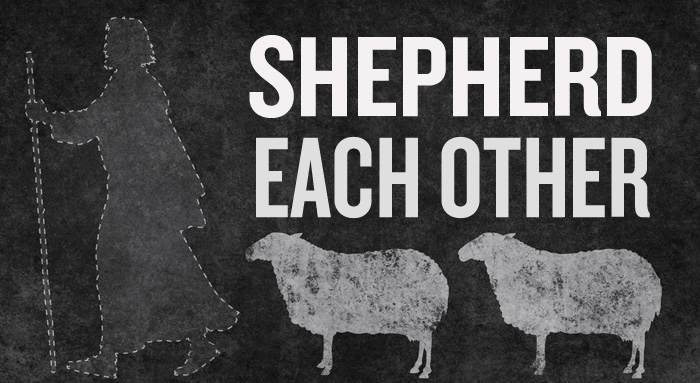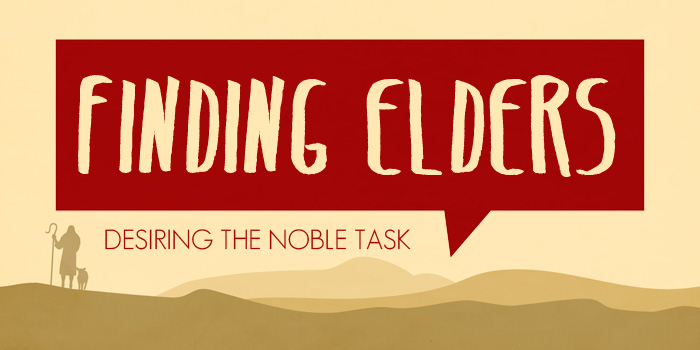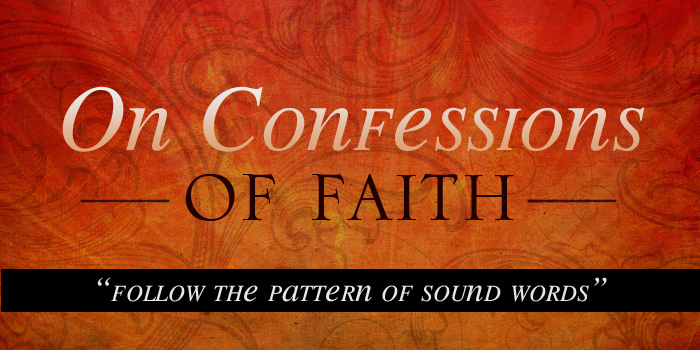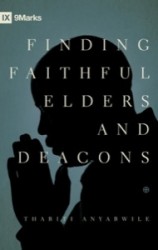
One of the best parts of our recent elder training process at IDC was the use of an Elder Confession of Faith. Our church members subscribe to a revised version of the New Hampshire Confession (1853), while our elders also subscribe to a revised version of the Second London Confession (1689).
Allow me to postulate these next two days on the value of an elder confession – or affirmation – of faith. Today I want to address why they are valuable and tomorrow how they are valuable.
TO USE OR NOT TO USE AN ELDER CONFESSION?
Should a church have more stringent standards of subscription for elders than other members of the church? Mark Dever says, “No.” In his excellent book A Display of God’s Glory Dever writes,
I know that there are many godly, congregational, baptist churches which, in deciding to have elders, decide also to have different, more stringent standards of subscription for elders than for other members of the church. . . . While the desire for exemplary maturity in the elders of a congregation is healthy and even biblical, this means of achieving it may leave something to be desired. Do we see such clearly modeled in Scripture? No.
He fears that such a formal requirement would tend to move the church to a more “clergy-dependent” position. It’s a very rare day when I find myself disagreeing with the Bishop of 9Marks, but I side with Piper on this one.
About fifteen years ago the elders at Piper’s church, Bethlehem Baptist Church, “felt the need to define what they believe and teach for the clarity and continuance of Biblical faithfulness in the church.” Piper, surprise surprise, was charged to write the first draft. What became known as The Bethlehem Baptist Elder Affirmation of Faith is a model of biblical clarity and conviction.
I came very close to using it with our elders. My historical sensibilities led me to go with the revised 1689 Confession to show, in some sense, historical solidarity with the Baptist tradition.
DRAWING IN THE DOCTRINAL SANDS
The clear witness of the New Testament is that one needs to only make a credible profession of faith to be received into membership in a local church. Thus, the confession for church members ought not to draw more doctrinal lines in the sand than Scripture. It ought to be clear on Scripture, God, the gospel, and the church. Going much further than that would make subscription for members unnecessarily restrictive.
In fact, here is a screenshot from a handout we use in our membership class to show just how ordinary our church confession is:
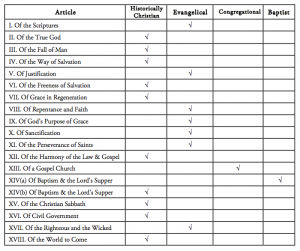
Now the question when it comes to elders is, “Should there be a higher level of subscription?” Or maybe a better way to word it is, “Should there be a more detailed level of subscription?” In my view the answer is, “Definitely.”
The ecumenicism of the New Hampshire Confession is fabulous for church membership, but is lacking when it comes to eldership. I could see a continuationist, convinced cessationist, progressive dispensationalist, and confessing covenant theologian all agreeing with the document. I don’t think that’s a bad thing for church membership, but for an elder board such diversity of theological conviction undermines unity in theology and philosophy. Few would probably disagree with me here.
So then a more detailed confession that draws simple – yet appropriate – lines in the doctrinal sand is valuable for testing and teasing out the convictions of elders candidates. I wouldn’t advocate a document that draws such lines all over the place, but it would draw foundational lines.
Here’s are two simple examples of this works out at our church with the New Hampshire Confession (NHC) and the Second London Confession (SLC):
- Agreement with the NHC means subscription to the infallibility of Scripture
– Agreement with the SLC means subscription to the infallibility and sufficiency of Scripture
- Agreement with the NHC means subscription to the sovereignty of God
– Agreement with the SLC means subscription to sovereignty of God and compatibilism
So the elder confession allows us to “up the ante” of theological conviction, which I believe is a good thing the more a person increases in leadership responsibility. One way to think about it as when you join a church very few things are in the “closed hand” of theology, but the further up and further in you go the more get put into confessional fisticuffs.
THE AIM OF UNITY
Titus 1:9 says an elder “must hold firm to the trustworthy word as taught, so that he may be able to give instruction in sound doctrine and also to rebuke those who contradict it.”
Elder confessions of faith, when done rightly, help existing elders more sharply discern what doctrines a candidate would teach and which doctrines he would refute. So rather than creating a more “clergy-dependent” church, the document actually increased Ephesians 4 type realities: unity of the Spirit in the bond of peace, equipping saints unto unity in the knowledge of the Son of God, and speaking the truth in love.



